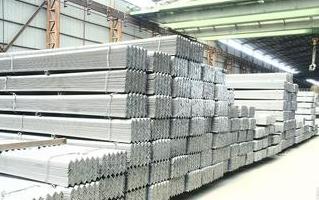 The Wall Street Journal published a commentary on November 28 stating that the current outstanding problem in the global steel industry is excess production capacity, and this has caused a series of problems that cannot be ignored.
The Wall Street Journal published a commentary on November 28 stating that the current outstanding problem in the global steel industry is excess production capacity, and this has caused a series of problems that cannot be ignored. First, the global steel industry is experiencing overcapacity. In 2012, the total production capacity of steel plants around the world was 1.8 billion tons, and the total orders received by them were only 1.5 billion tons. The steel industry has not only failed to integrate the industry and improve its efficiency, but has instead expanded its production capacity. By 2016, the world is expected to have about 100 new steel mills put into operation, with a total capacity of about 350 million tons. Companies in Vietnam, Argentina, Ecuador, Peru, and Bolivia are building or planning to build new iron and steel mills, all with the support of their respective governments. Officials in these countries stated that they are committed to investing in industrial development, providing domestic manufacturers with domestically produced steel, and reducing steel imports. But such things that may seem beneficial to specific countries may have a negative impact on the global steel industry.
Second, the global steel industry has struggled to integrate. The issue of overcapacity has depressed steel prices and profits in the steel industry, leading steel industry executives and investors to continue to call for the integration of the industry. However, the global steel industry is too scattered. Due to the strong political opposition from various governments, the steel industry has not made progress in achieving integration. In the foreseeable future, the steel industry will remain the most dispersed of the major industries. The world’s five largest steel companies control only 18.2% of global steel supply. In contrast, the world's top five auto companies control 50.6% of the global market, and the five largest seaborne iron ore companies occupy 66.1% of the market.
Third, the overcapacity of steel causes the merger environment of metal and mining industries to be poor. In the first three quarters of 2012, the total amount of metal and mining mergers and acquisitions was US$76.8 billion, a decrease of 43% from US$133.7 billion in the same period of 2011. The steel industry needs to have an important role to buy the underperforming steel mills and close them. If this is not done, steel producers will not be able to achieve the economies of scale needed to significantly reduce transportation and production costs, and they will not have the strength to negotiate with raw material suppliers and customers such as auto and home appliance manufacturers.
NPK High Tower melt spray granulation technology is an advanced production process in the world's compound fertilizer industry.
High tower melt spray granulation compound fertilizer adopts fully automatic computer-controlled batching to melt urea, phosphorus, potassium and other raw materials, after fully mixing pulping, through special tower high-speed differential spray granulator, from the tower The top spray down, after air cooling granulation, its technical indicators have reached the world advanced level, has the following advantages:
(1) Low production costs
(2) uniform particles;
(3) smooth granulation;
(4) Low moisture content and no agglomeration;
(5) Each particle has a melting hole, and the melting rate is fast;
(6) High water solubility and good use effect.
NPK High Tower
NPK High Tower,High Tower NPK Fertilizers,NPK Compound Fertilizer High Tower,NPK Blue Fertilizer High Tower
SHIJIAZHUANG HAN HAO TRADE CO., LTD. , http://www.hhfertilizers.com
